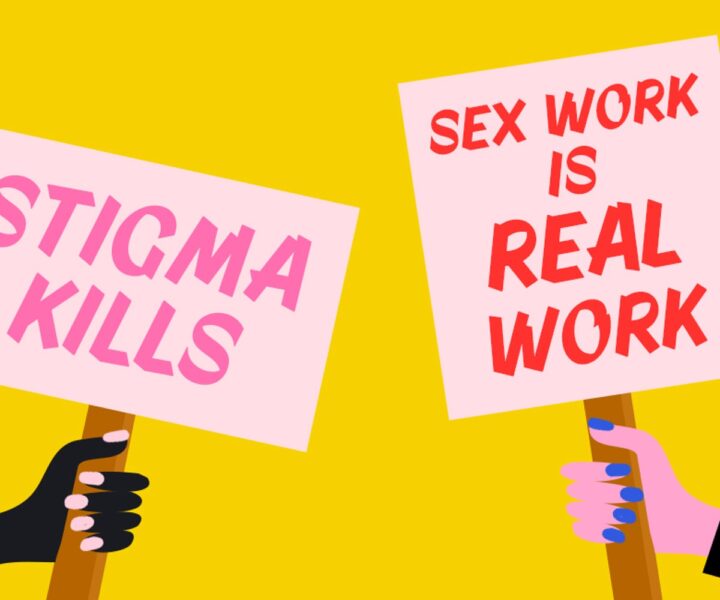What a Slut!
Written by- Abhivyakti Gupta & Vagmi Sharma
Who is a Sex Worker?
“Unethical! Illegal! What a disgrace! This is socially unacceptable!! Shameless!”
These are often the words that come to one’s mind when they hear the word ‘sex worker’. According to WHO, sex work is defined as the provision of sexual services for money or goods and sex workers are defined as women, men and transgender people who receive money or goods in exchange for sexual services, and who consciously define those activities as income generating even if they do not consider sex work as their occupation.
What is the societal stigma around Sex Workers?

This stigma around sex workers is mainly due to societal norms and morals defining what is good and what is bad, what is respectable and what is not, and due to the legal structure. The fact that sex work is mostly perceived as a criminal act in the eyes of the law, contributes to a big factor of it being wrong and unethical. While some are forced by financial constraints, some are voluntarily involved in sex work simply because sex work also pays more.
What counts as a basic necessity for you, is a privilege for a sex worker
From living with shame to being denied of the most basic rights, sex workers live a life of constant struggle. Sex workers are belittled and deemed as uneducated people who have no meaning to their life and whose lives have no value. The mere fact that sex work is unacceptable to the society and a sex worker is treated like a 19th century untouchable, somehow justifies every wrongful act or misconduct towards them. Any kind of violence or misdemeanor is acceptable. According to a paper by various NGOs, nearly 56% women in India face violence from their clients and 40% from their lovers/partners. If ever a sex worker manages to report any mishap (although they hardly ever get justice since victim blaming the culture), almost 50% are abused and 37% are physically harmed.
They are denied of health care facilities, protection by law, decent housing, community participation, job opportunities, and any other basic facility that is generally available to all, is a matter of privilege to a sex worker. To be able to live with a safety net and without the burden of shame, sex workers hide their profession and put on a different facade for the world.
But have you ever wondered why prostitution is considered a sin, and always has a negative connotation attached to it? Why not other professions that involve provision of a service with the use of one’s body parts?
Prostitute and a Masseuse

Source- Nussbaum, Martha C. “‘Whether From Reason Or Prejudice’: Taking Money For Bodily Services.” The Journal of Legal Studies, vol. 27, no. S2, 1998, pp. 693–723. JSTOR, www.jstor.org/stable/10.1086/468040. Accessed 14 Sept. 2020.
A Prostitute and a Professor
Lastly, the professions of a prostitute finds in itself some similarity with that of a professor. Both professions provide access to bodily spaces that are considered intimate: the vagina and the mind. They both also aim to provide a feeling of satisfaction or pleasure. A professor’s intimate bodily space is invaded too for they engage with arguments against their beliefs-ideas that are unanticipated. The difference between the two professions is one of respectability, legality and of working conditions. These are the areas where a professor’s profession experiences benefits, and a prostitute, the lack of it.
The above mentioned comparison provides that the biggest different between sex work and other professions is one of Brahmanical patriarchal stigma. It is imperative to engage in Ambedkarite feminism and fight such stigma and assist healing for the trauma our society has caused to sex workers in the concerned profession.
Source- Nussbaum, Martha C. “‘Whether From Reason Or Prejudice’: Taking Money For Bodily Services.” The Journal of Legal Studies, vol. 27, no. S2, 1998, pp. 693–723. JSTOR, www.jstor.org/stable/10.1086/468040. Accessed 14 Sept. 2020.
Author



